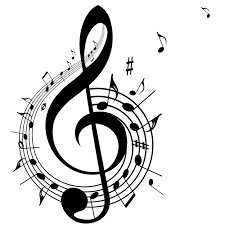Title: Chants
General Information about Item:
- Genre and sub genre: Customary and verbal folklore: custom, myth, tale, song
- Language: Hawaiian/English
- Country: USA
Informant Data:
- Collected from myself: Marlo Mundon ’20 from the Big Island of Hawaii in 2009 from peers and teachers.
Contextual Data:
- Social Context: This chant is used to ask for knowledge, wisdom, and guidance from ones ancestors. It is used mostly in formal and educational settings.
- Cultural Context: There are many different kinds of chants that have different contexts, meanings, and styles of performance. Sometimes they are simply songs on their own or with hula (which usually tell stories and myths), or during seasonal ceremonies (for the gods or ancestors) or special occasions. There are many styles that range from sing-songy to monotone chants performed by societal leaders.
Item:
E ho mai
Ka ike mai luna mai e
na mea huna no’eau o na ele
E ho mai
E ho mai
E ho mai e
Audio Interview:
Transcript:
Michael: Do you have any like cultural tradition or superstition that you would like to share?
Marlo: One tradition that is really prevalent throughout all of Hawaii is chanting. At my old charter school we used to do chants every morning, they can be used in all kinds of contexts with a whole bunch of different meanings and stuff. Often times they’re used for ceremonies or special occasions, sometimes just announcing your presence if you’re a guest somewhere. Sometimes they’re just songs, or used for hula. A lot of them have specific meanings like some of them are in dedication to the ancestors or the gods. Some of them are for making your crops grow really well or asking for knowledge. That one in particular, asking for knowledge, there’s a short chant I know called “E ho mai” and that’s basically asking your ancestors to grant you knowledge.
Michael: Okay, and what are your thoughts on the social and cultural context of the chant and why?
Marlo: Socially, it’s super duper normal. The most common time you’ll hear a chant is before a meal, it’s kind of like saying grace. Some even end with “amen” but we say “amene” and like we do it at graduation, before school. It’s used all the time in many contexts. Culturally it’s a really, really old tradition that goes back to the beginning of Hawaiian culture. Like I said it has a lot of uses and it’s still used the same way today for cultural practices. It’s a good way to stay connected to the past and keep it alive today. When Hawaii was annexed it was illegal to practice um, like to do hula, speak the language, stuff like that and even now people don’t speak Hawaiian so doing the chants in the Hawaiian language keeps it alive because it’s dying out.
Michael: You should do the chant if you can remember it.
Marlo: Absolutely. It’s a short one but it’s repeated three times. I’ll just do the first time. And it raises an octave every time so that’s it.
Collector: Marlo Mundon



 Welcome Song Initiation/Ritual
Welcome Song Initiation/Ritual